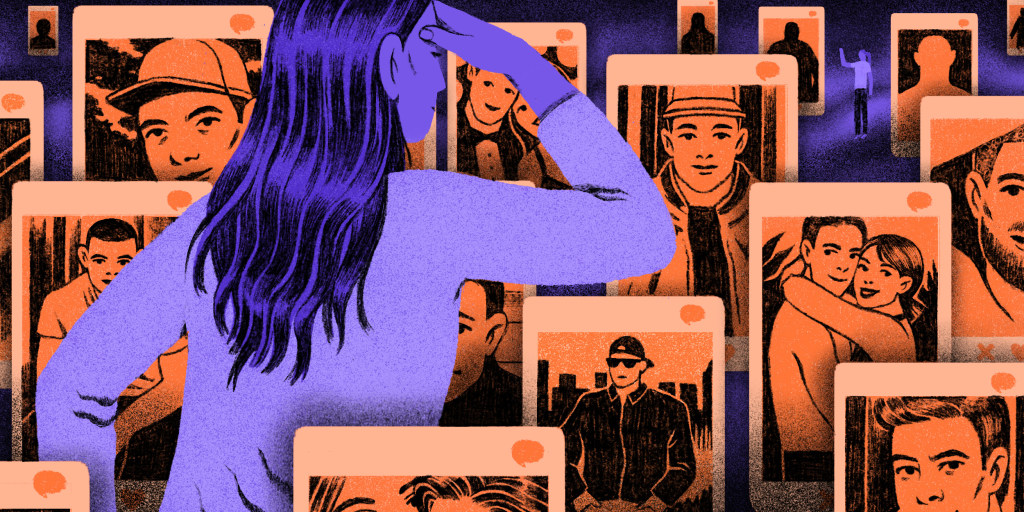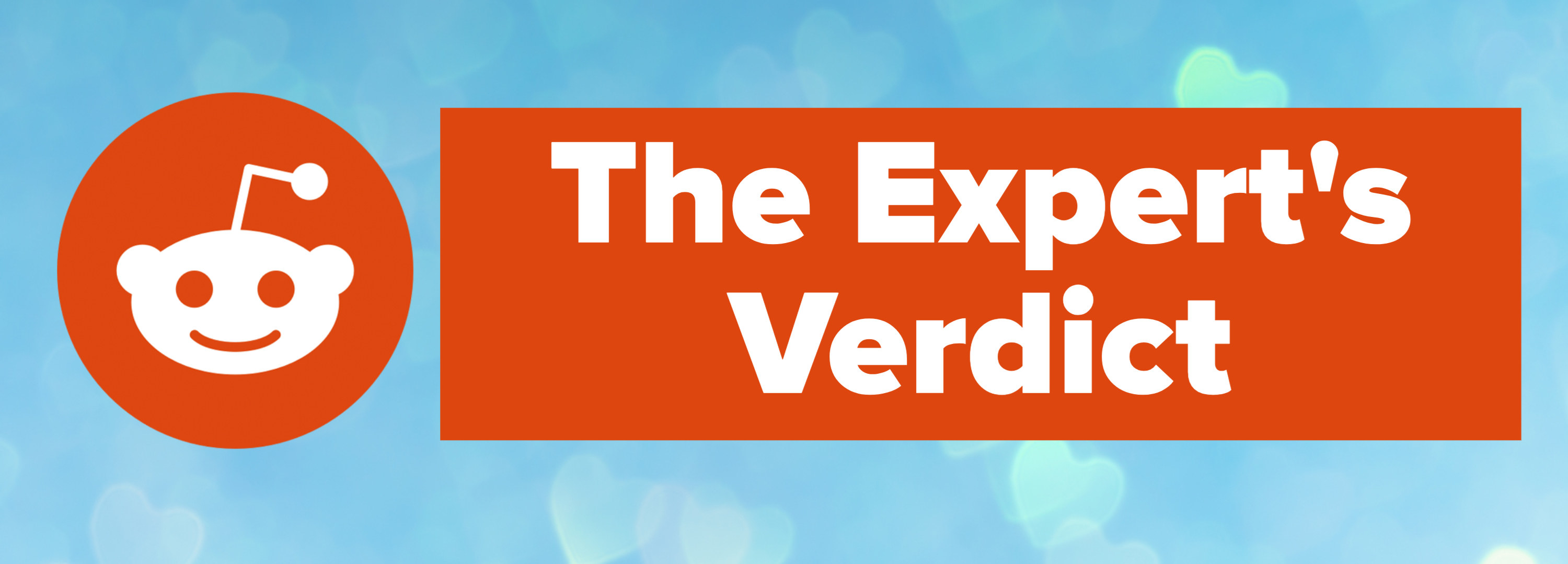Bisexual Dating Reddit
No Men's Land: When Women Won't Date Bisexual Guys. By McKenna Ferguson @McKennaMagazine. March 17 2016 3:14 PM EDT. A while back, I was casually scrolling through Twitter on my company-mandated. Dating can be hard. Dating as an asexual can be even harder. This is a place for us to come together. You could try to find someone for yourself, ask for advice, support, or just rant.
Lighthouse therapist Deanna Richards offers advice for monosexual people in relationships with a bisexual partner.
Bisexual people often occupy a challenging space between gay, lesbian, and heterosexual communities. Despite research that shows monosexual identities — or the attraction to only one sex or gender identity — are becoming less common, bisexuality is frequently written off as “just a phase,” or a stop on the way to coming out as gay or lesbian. And it’s not just straight people who are to blame: research shows that gay and lesbian individuals still hold negative perceptions of bi people as well.
So what happens when a bisexual or pansexual person enters a closed relationship with a monosexual partner, or comes out as bi or pan after they’re already in the relationship? We sat down with Lighthouse therapist Deanna Richards to discuss how both partners can communicate clearly and overcome the challenges that accompany dating someone of a different sexual orientation.
The Double Threat: Overcoming Jealousy with Your Bisexual Partner
Jealousy and insecurity can arise in any relationship, but may pop up more frequently in relationships in which one partner is non-monosexual. This paranoia, says Richards, is typically a product of biphobia, or ingrained assumptions that bisexual people are more promiscuous than monosexual people, which is just one of many myths associated with bisexuality. “There’s this idea that non-monosexual people just don’t have any boundaries,” says Richards. “This can seem scary to partners — there’s a sense that you can’t trust someone without boundaries, and jealousy naturally arises from that.”
Those same feelings of jealousy and inadequacy can fuel attitudes of bi-erasure in the monosexual partner. For instance, if a man who’s in a relationship with a woman comes out as bi, his heterosexual female partner might suggest he’s gay as a means to minimize perceived threat and absolve herself of responsibility or feelings of failure. If he only likes men, the logic goes, then there was nothing the female partner could do to prevent the male partner’s interest in opening or leaving the relationship to explore relationships with other men.




Ideally, the bisexual partner will be open about their identity from the get-go. But many people may not feel safe enough to come out as bi — or even the realization that they might be bi — until they’re well into a heterosexual relationship. “When it comes to exploring bisexual identity,” says Richards, “Women are typically given more room to explore, particularly when they’re in a closed relationship with a man. But when a male partner suggests he might also like men, many women feel scared of the fact that there’s a whole group of people who can offer their partner something — a literal, anatomical something — that they can’t.” The same goes for same-sex female couples in which one partner expresses interest in men.
Monosexual Partners: Practice Compassionate Curiosity
When jealousies or bi-related anxieties arise, Richards suggests that both partners engage in open and honest dialogue. “The monosexual partner should examine their ingrained assumptions about bisexuality and try and turn those assumptions into questions,” says Richards. “Avoid minimizing, avoid invalidating, and above all, avoid thrusting your partner into another identity.”
Richards also suggests that the monosexual partner engage in conversation about the topic outside of the relationship, either with a mental healthcare provider or with communities of people who may be experiencing something similar. It can be overwhelming for the bisexual partner to be the sole source of education, and there are other avenues through which monosexual people can learn about bisexuality. Above all, it’s important to practice compassionate curiosity with their bisexual partner — wherein the monosexual partner does not attack or judge, but simply asks questions about their partner’s identity.
Bisexual Partners: Be Honest And Patient
If you come out as non-monosexual well into a relationship, know that it will take time for your partner to learn about this new facet of your identity. Be patient and honest, and let your partner know that you are there to work through their process of acceptance. “It’s important to be supportive, but also to take space for self care,” notes Richards. “Going to meetups, therapy, or even just talking with friends can help with self-esteem and patience in the context of the relationship.”
If you come out as non-monosexual in the early days and are already comfortable in that identity, you’ll likely have a better idea of what you’re willing to help a monosexual partner work through. “Be straightforward and honest as you’re able to,” says Richards. “While it’s important to be patient and supportive, be wary of partners who make you feel as if you should apologize for your identity.”
Dating Advice Reddit
How to Move Forward
Good Looking Loser Forum
Just because someone comes out as bi or pan within the context of a relationship doesn’t necessarily mean they want or need to act on it — but they might, and the monosexual partner should be prepared to have that conversation. “It’s important for the monosexual partner to ask themselves, ‘how can I support my partner in the context of this relationship — what does that look like moving forward?’” says Richards. Rather than immediately alienating your bisexual partner or jumping to the worst case scenario, ask yourself whether you’re receptive to the idea of an open relationship. Alternatively, if you’d like to stay monogamous, consider using fantasy as a way to create an intimate space for your partner’s bi identity. No matter what course of action you and your partner decide to take, don’t immediately shut down the idea of changing what your relationship looks like.
Embracing Non-Monosexuality
Research shows that monosexual identities are becoming less common, especially among younger generations. According to a 2016 survey conducted by the J. Walter Thompson Innovation Group, only 48 percent of teenagers identify as completely straight, and over a third of those surveyed expressed an identity ranging between 1 and 5 on the Kinsey scale, indicating different levels of bisexuality, or non-monosexual identities. This increasing normalization of non-monosexual identities will contribute to reducing biphobia and bi-erasure in the coming years, and minimize the widespread anxieties surrounding bisexual identities.

That said, monosexual people still have a long way to go in eschewing misconceptions that surround bisexuality, and working to understand the experiences of bisexual friends and partners. One way to prioritize honest communication in your relationship is by visiting an LGBT friendly therapist with your partner. To book an appointment with Deanna Richards, click here. To visit her website, click here.